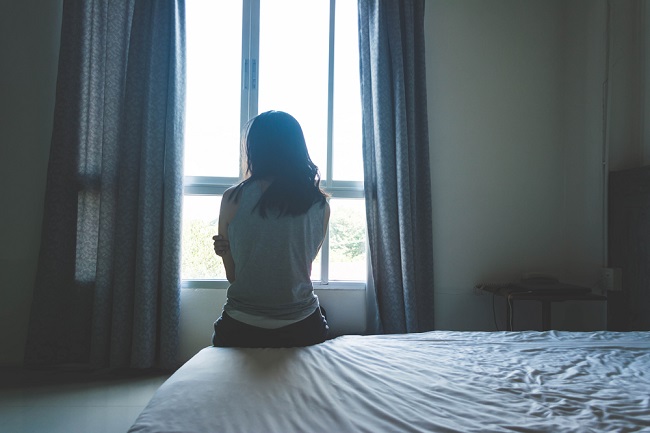Difficulty sleeping during late pregnancy is a common complaint. Estimated at least 3 out of 4 pregnant women experience this condition. If you are pregnant and often have trouble sleeping, there are tips you can do to improve the quality of your sleep, so that pregnant women's health is maintained.
There are many factors that can cause complaints of insomnia during late pregnancy, including enlargement of the size of the uterus that makes pregnant women feel uncomfortable, leg cramps, back pain, burning or heartburn, nausea and heartburn, frequent urination at night. , to stress and anxiety.

Most of the causes of insomnia during pregnancy are harmless and the problem goes away on its own after delivery. However, pregnant women also need to be vigilant, if they often have trouble sleeping or when this complaint makes pregnant women tired and difficult to move.
How to Overcome Difficulty Sleeping When Pregnant
Although it is quite common, complaints of insomnia during late pregnancy need to be addressed properly. The reason is, not only causing fatigue, lack of sleep during pregnancy can also make pregnant women more at risk for pregnancy complications, such as preeclampsia and hypertension.
In addition, sleep disorders during pregnancy that are not treated can also put pregnant women at high risk for developing gestational diabetes, giving birth by caesarean section, giving birth to premature babies, or postpartum depression.
Here are ways that pregnant women can do to overcome complaints of insomnia during late pregnancy:
1. Ppay attention to sleeping position
When pregnant, pregnant women need to adjust their sleeping position so they can sleep comfortably. The recommended sleeping position during late pregnancy is to sleep on your left side with your knees bent.
When pregnant women feel complaints heartburn or a hot sensation in the chest, pregnant women can sleep in a half-sitting position with their backs against a pile of pillows.
2. Take advantage of extra pillows
Apart from being able to support the body when in a reclined position, pregnant women can also use a regular pillow or a special pillow for pregnant women to hold the stomach by placing it between the legs when sleeping on its side. That way, sleeping during late pregnancy will feel more comfortable.
3. Tapply bedtime
Try to apply a regular bedtime every day. So that pregnant women can sleep faster, it is recommended to create a calm sleeping atmosphere, then dim the room lights. If pregnant women are sleep deprived at night, you should make time for a short nap. Pregnant women can also apply sleep hygiene.
4. Practice relaxation techniques
To relax your mind and body muscles, try relaxing before bedtime. One way is to regulate breathing, namely by taking a deep breath and then slowly exhaling it through the mouth.
In addition, pregnant women can also relax with yoga or yoga stretching before bed, try aromatherapy, or ask your husband to give you a massage. This method can also be done to deal with stress during pregnancy.
5. Adequate nutritional intake
There are several food and drink options to help you sleep better. Consumption of warm milk before bed or foods high in carbohydrates and protein, such as eggs, whole wheat bread, biscuits, and nuts, can make pregnant women fall asleep faster.
These foods are also good for meeting the nutritional and energy needs of pregnant women, as well as supporting the growth and development of the fetus. So that pregnant women don't have difficulty sleeping during late pregnancy, try not to consume coffee, tea, or energy drinks that contain caffeine, as well as alcoholic drinks, okay?
6. Exercise regularly
In order to be able to sleep quickly, pregnant women are also advised to stay active and exercise regularly, even though they are burdened with increasing body weight and stomach.
By staying active, not only complaints of insomnia can be handled, other complaints during late pregnancy, such as back pain, constipation, and easy fatigue, can also be relieved.
However, remember. Pregnant women need to do it carefully and still consult with their doctor regarding what activities are allowed and not, including related to safe exercise options for pregnant women.
Those are some tips for overcoming insomnia during late pregnancy that pregnant women can try. If you have implemented the methods above, but the complaint of insomnia does not go away, pregnant women are advised to consult a gynecologist. The doctor will provide appropriate treatment according to the condition and health of the pregnant woman.









